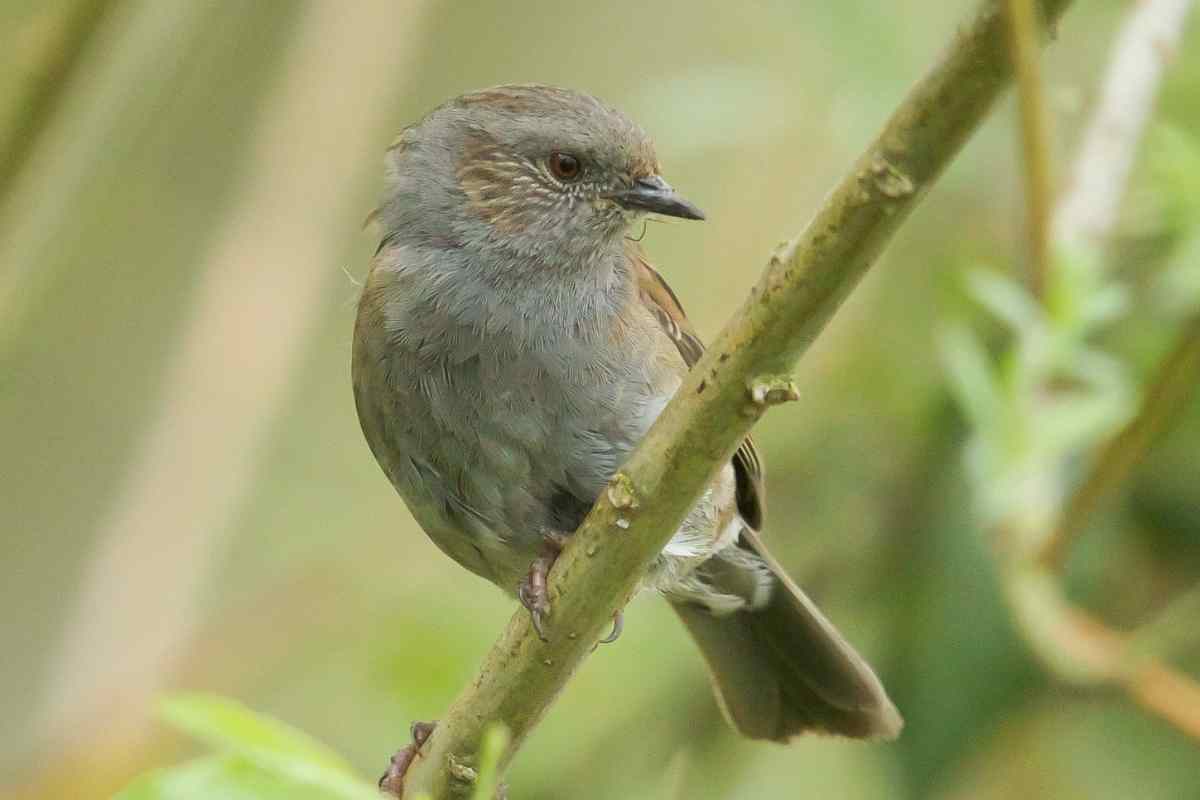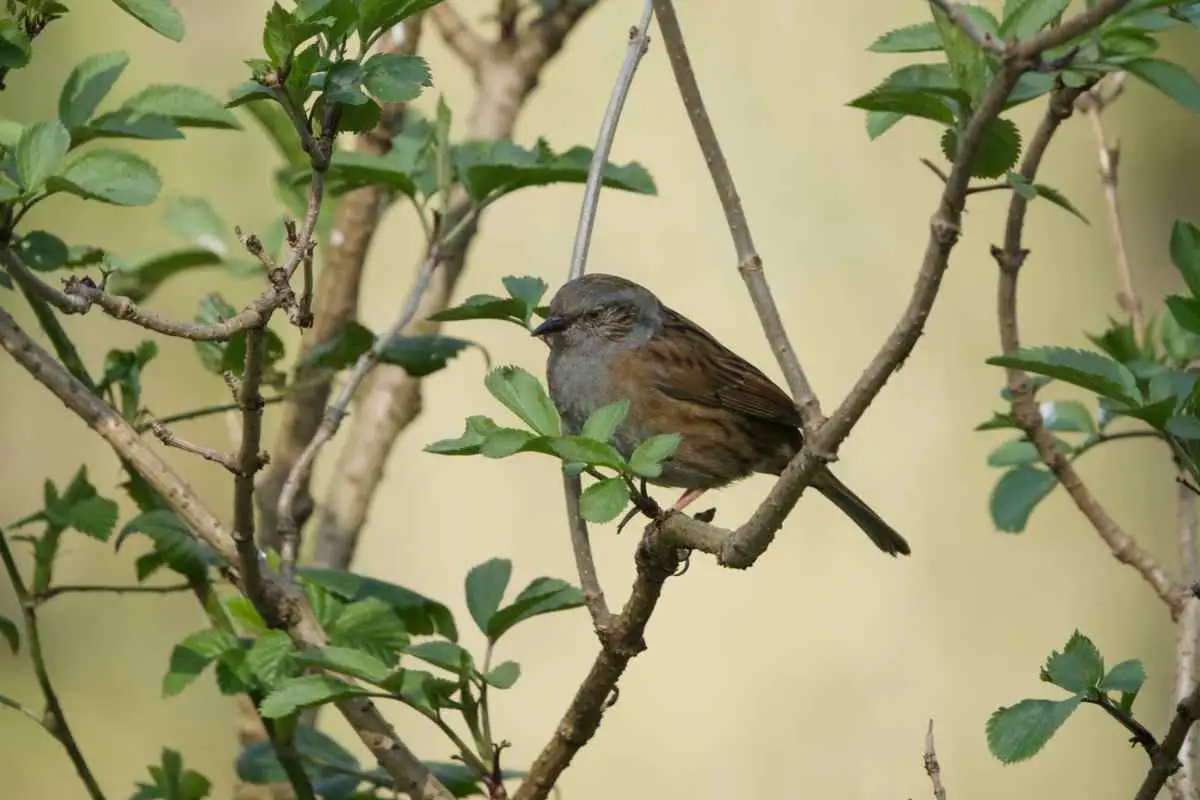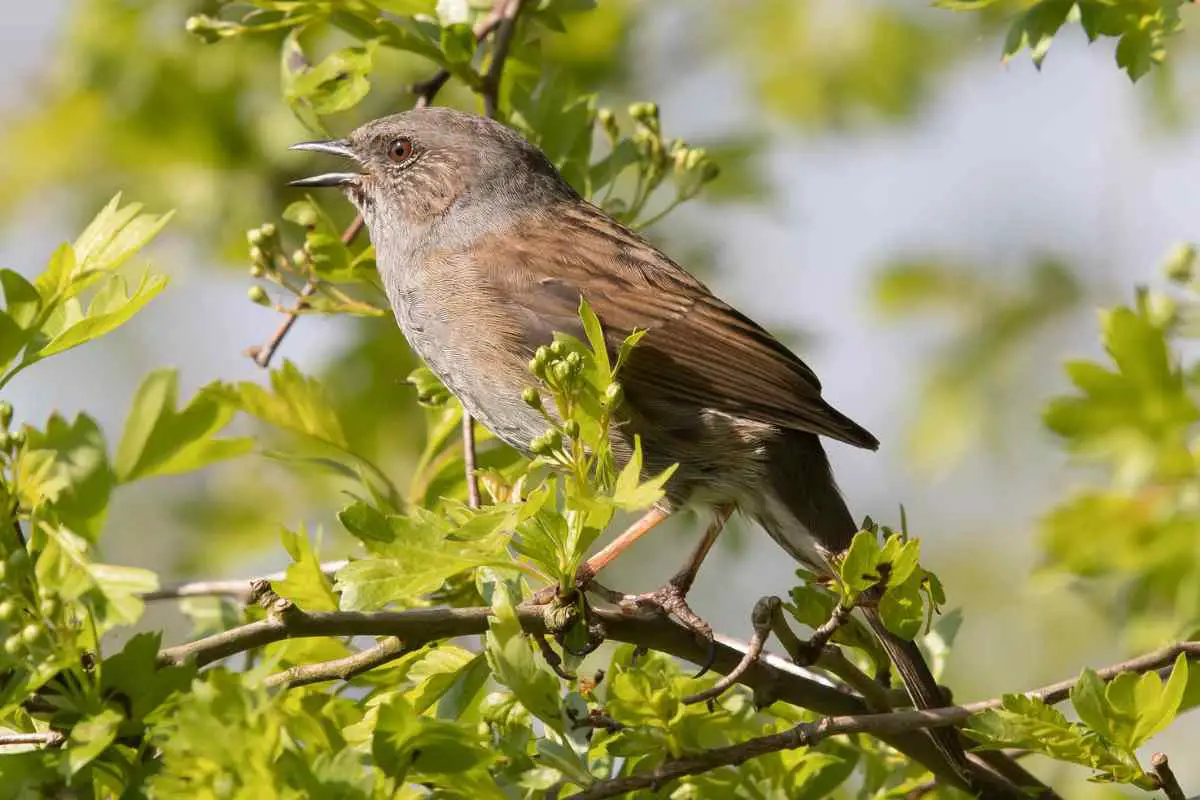Baby squirrels are adorable creatures that require special care and attention during their first few weeks of life. One of the most important aspects of caring for a baby squirrel is feeding it properly.
It’s essential to understand how often baby squirrels need to eat to ensure they grow up healthy and strong.
According to experts, newborn baby squirrels need to be fed every two hours for the first few weeks of life.
As they get a little older, the number of feedings can be gradually decreased, but it’s important not to let more than 4 or 5 hours go by without providing sustenance.
It’s also crucial to ensure that the baby squirrel is receiving the proper nutrition to support its growth and development.
Knowing how often to feed a baby squirrel is just one part of the equation. It’s also important to understand what to feed them.
The diet of a baby squirrel should consist of a special formula that is designed specifically for its needs. As they get older, they can be introduced to solid foods, such as vegetables and fruits, but it’s important to do so gradually and one at a time.
By providing the proper care and nutrition, baby squirrels can grow up to be healthy and happy adults.
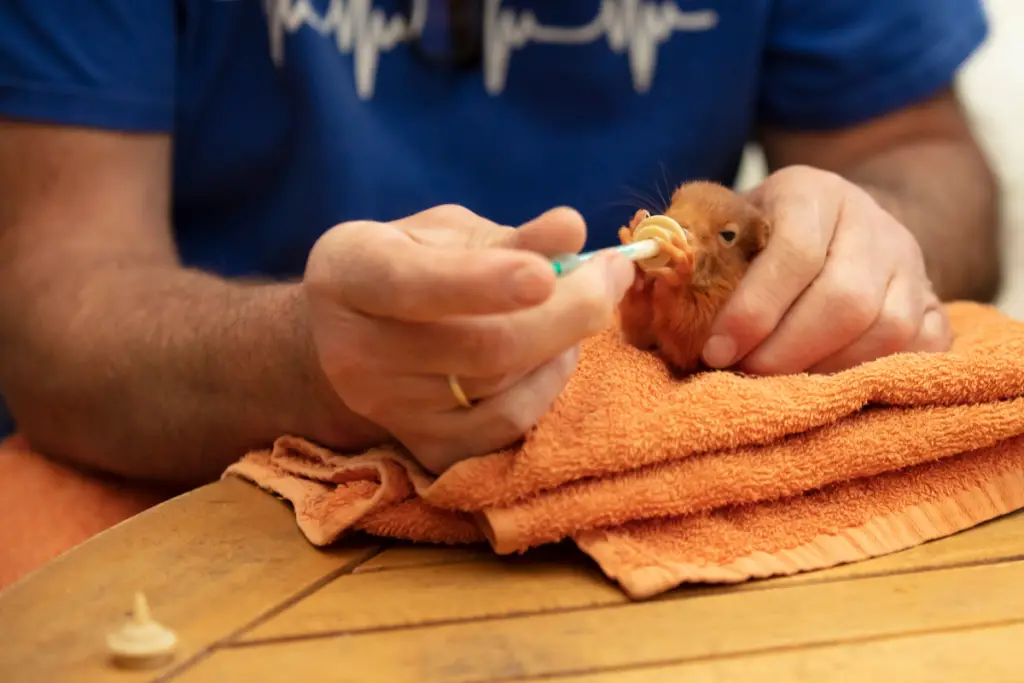
Table of Contents
Why Feeding Baby Squirrels is Important
Feeding baby squirrels is crucial to their survival and development. As with all animals, nutrition is essential to their growth and overall health.
Baby squirrels need a lot of care and attention, especially during the first few weeks of their lives. They are born blind, deaf, and hairless, and rely entirely on their mother for food and warmth.
If a baby squirrel is orphaned or separated from its mother, it needs to be hand-fed by a caregiver. The caregiver must provide the baby squirrel with a proper diet and feeding schedule to ensure its survival.
Baby squirrels have high metabolic rates and require frequent feedings to maintain their energy levels and body temperature.
The feeding schedule for a baby squirrel varies depending on its age. A one-week-old squirrel needs to be fed every two hours, even at night.
A two-week-old squirrel needs to be fed every three hours, and so on. As the squirrel grows, the feeding frequency can be gradually reduced.
It is essential to provide the baby squirrel with the right kind of food. Baby squirrels require a special formula that is high in fat and protein.
They cannot digest cow’s milk, so it is important to use a formula specifically designed for squirrels. As the squirrel grows, solid foods can be introduced gradually, such as fruits, vegetables, and animal protein.
In conclusion, feeding baby squirrels is a critical aspect of their care. It is important to follow a proper feeding schedule and provide the squirrel with the right kind of food.
By doing so, the caregiver can ensure the squirrel’s survival and help it grow into a healthy adult squirrel.
When to Start Feeding Baby Squirrels
Feeding baby squirrels can be an intensive and rewarding experience, but it is important to know when to start feeding them. Here are some guidelines to follow:
Age of Baby Squirrels
- Newborns (0-3 weeks old): Newborn squirrels are completely dependent on their mother’s milk for the first few weeks of their life. They do not need to be fed anything else during this time.
- 3-4 weeks old: At this age, baby squirrels start to open their eyes and become more active. It is important to start feeding them a milk replacement formula every 3-4 hours, including at night. A three-week-old squirrel will need to be fed every 3 to 4 hours, even at night.
- 5-6 weeks old: At this age, baby squirrels can start to be weaned off formula and introduced to solid foods. You can start by offering them small pieces of squirrel blocks. It is important to continue feeding them formula during this time, but you can gradually decrease the amount of formula as they start to eat more solid foods. A five or six-week-old baby squirrel will need to be fed every 4 hours, but it is not necessary during the night.
- 7-8 weeks old: By this age, baby squirrels should be eating mostly solid foods and drinking less formula. You can continue to offer them a variety of fruits and vegetables along with squirrel blocks. It is important to monitor their weight and adjust their feeding schedule accordingly.
It is important to note that baby squirrels have very specific nutritional needs, and it is recommended to consult with a licensed wildlife rehabilitator or veterinarian for guidance on feeding and care.
How Often to Feed Baby Squirrels
When it comes to feeding baby squirrels, it’s important to establish a feeding schedule that meets their nutritional needs. Here are some guidelines to help determine how often to feed baby squirrels.
Frequency of Feedings
Newborn baby squirrels should be fed every two hours around the clock for the first few weeks of life.
As they get a little older, the number of feedings can gradually decrease, but try not to let more than 4 or 5 hours go by without providing sustenance.
Between two and three weeks of age, the baby squirrel’s eyes will open, and the feeding schedule can be adjusted to every three hours until weaning, which is between seven and ten weeks old.
Amount of Formula per Feeding
The amount of formula per feeding will depend on the age and weight of the baby squirrel. As a general rule, a newborn squirrel will need about 1 cc of formula per feeding.
By the time they are three weeks old, they will need about 3 cc of formula per feeding.
It’s important to monitor the baby squirrel’s weight and adjust the amount of formula accordingly.
Overfeeding can lead to digestive problems, so it’s better to err on the side of caution and feed smaller amounts more frequently.
In addition to formula, baby squirrels can be introduced to solid foods at around 5 weeks of age. Vegetables should be introduced one at a time, and if there are no issues after 24 hours, another veggie can be introduced.
By following these guidelines, caregivers can ensure that baby squirrels receive the proper nutrition they need to grow and thrive.
What to Feed Baby Squirrels
When it comes to feeding baby squirrels, it is important to provide them with the right nutrients for their growth and development.
There are two main stages of feeding for baby squirrels: formula and solid foods.
Formula
For the first few weeks of a baby squirrel’s life, it will rely solely on formula for its nutrition. It is recommended to use a specially formulated squirrel milk replacer, which can be found at most pet stores or online. The formula should be warmed to body temperature before feeding.
The frequency of feedings will depend on the age of the squirrel. A three-week-old squirrel will need to be fed every 3 to 4 hours, while a four-week-old squirrel will need to be fed every 4 hours.
After five or six weeks, it is not necessary to feed them during the night.
It is important to monitor the squirrel’s weight and adjust the amount of formula accordingly. Overfeeding can lead to health problems, while underfeeding can result in stunted growth.
Solid Foods
As the baby squirrel grows, they will begin to show interest in solid foods. It is important to introduce them to solid foods gradually, starting with soft fruits and vegetables. Cut the food into small pieces to avoid choking hazards.
Some recommended foods for baby squirrels include:
- Apples
- Berries
- Grapes
- Watermelon
- Avocado (thinly sliced to avoid choking hazards)
- Carrots
- Sweet potatoes
- Green beans
It is important to note that baby squirrels should not be fed nuts or seeds until they are older, as they can cause digestive issues.
In conclusion, feeding baby squirrels requires a careful balance of formula and solid foods. By providing them with the right nutrition, they can grow up healthy and strong.
How to Feed Baby Squirrels
Feeding baby squirrels can be a challenging task, but it is crucial for their survival. Here are some tips on how to feed baby squirrels:
Feeding Techniques
There are several feeding techniques that can be used to feed baby squirrels. One common technique is to use a syringe to feed them formula.
When using a syringe, it is important to hold the squirrel securely and to insert the syringe gently into its mouth.
Another technique is to use a dropper or a small spoon to feed them formula. This technique is often used for older squirrels who are able to lap up the formula.
It is important to feed baby squirrels on a regular schedule. The frequency of feedings will depend on the age of the squirrel.
For example, a three-week-old squirrel will need to be fed every three to four hours, while a five or six-week-old squirrel may only need to be fed every four hours.
Feeding Tools
When feeding baby squirrels, it is important to have the right tools on hand. Here are some feeding tools that can be used:
- Syringe: A syringe can be used to feed formula to baby squirrels.
- Dropper: A dropper can be used to feed formula to baby squirrels.
- Small spoon: A small spoon can be used to feed formula to older squirrels.
- Formula: It is important to have the right formula on hand. There are several types of formula available for baby squirrels, including Esbilac and Fox Valley.
It is important to use the right feeding tool for the age and size of the squirrel. For example, a syringe may be too large for a small squirrel, while a dropper may not hold enough formula for a larger squirrel.
Prices pulled from the Amazon Product Advertising API on:
Product prices and availability are accurate as of the date/time indicated and are subject to change. Any price and availability information displayed on [relevant Amazon Site(s), as applicable] at the time of purchase will apply to the purchase of this product.
In conclusion, feeding baby squirrels can be a challenging but rewarding experience. By using the right feeding techniques and tools, you can help ensure the survival of these adorable creatures.
Conclusion
In conclusion, feeding baby squirrels requires a lot of attention and care. As they grow and develop, their nutritional needs change, and it’s important to adjust their diet accordingly.
Based on the research, baby squirrels should be fed every few hours, up to six times a day, with a formula that is appropriate for their age. As they get older, they can be fed less frequently, as long as they are getting enough nutrition.
It’s important to weigh the baby squirrel and calculate the amount of food they need based on their weight. Overfeeding can cause diarrhea, which can be dangerous for the squirrel’s health.
In addition to formula, baby squirrels can be introduced to solid food at around three to four weeks old. Fresh drinking water should also be available to them.
It’s crucial to keep the nest box high in the tree, at least 12 to 15 feet up, to protect the baby squirrel from predators.
Overall, feeding baby squirrels requires a lot of attention and care, but with the right information and resources, it can be done successfully.
- How to Build a Planter Box for Bamboo: A Step-by-Step Guide
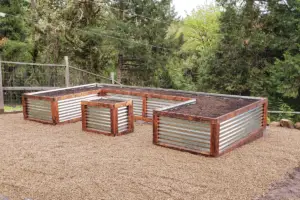
- Can Robotic Lawnmowers Handle Steep Slopes?
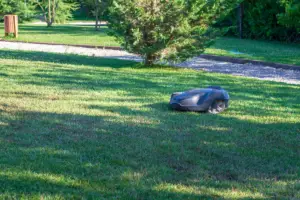
- Do You Need a Specific Lawn for a Robotic Lawnmower? Expert Advice
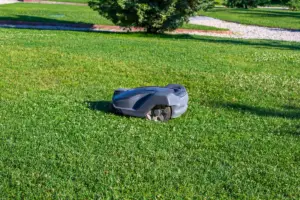
- Are Robotic Lawnmowers Safe for Pets and Children? Safety Features of Robotic Lawnmowers

- Why Use Robotic Lawnmowers? Advantages of Using a Robotic Lawnmower

- Is the GARDENA SILENO City 300 Cordless or Corded? A Clear Answer



















